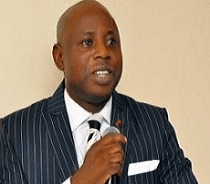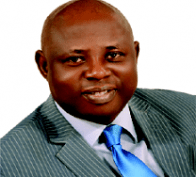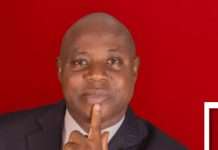Nigerians will not forget 2016 in a hurry. A lot of people in many other parts of the world will probably agree that the just-ended year was quite memorable in pleasant and unpleasant ways. Globally, the year closed with a mixture of cheering and shattering news: Donald Trump was elected president of the United States, to the chagrin of some and the delirious joy of others; Israel got hammered at the United Nations Security Council; Russia re-emerged as a major power broker in the world; United Kingdom voted to opt out of Europe; France, Germany, Iraq, Syria and Turkey witnessed destructive acts by religious fanatics.
On the whole, the global economy slithered and dithered throughout the year. The gloom and doom were meted out in proportions, with some folks celebrating the end of the year while others mourned, desperate for better times. Nigerians may be in the latter camp.
The good news is that most of us made it through the year. Many others, unfortunately, succumbed – in some cases, naturally; but in most cases, painfully and violently – to the cold hands of death.

Shattered dreams
In Nigeria, we started 2016 with a bucket load of hope. Expectations were high at the beginning of the year that the country would transform into the league of well run and wealthy nations. The optimism hinged mostly on the new President Buhari administration’s promises to work with probity and revitalise the economy.
Perhaps we shouldn’t have been so optimistic, considering the first signs of turbulence that were already noticeable in late 2015. However, the high expectations remained into the first quarter of 2016, possibly because we had just transferred government from one civilian leadership to another, a feat that had eluded the country since gaining independence. At the top of the new government is Buhari, a man whose personality, particularly his Spartan lifestyle, symbolised the expected future. Despite the best efforts of the government, though, the year offered nothing but pain, sorrow and broken promises. For most Nigerians, it was a year of affliction.
True to the prediction of the International Monetary Fund, IMF, the Nigerian economy shrank in 2016. All hopes that the first quarter contraction would give way to resurgence in the subsequent quarters faded with the continued slide in the oil sector. The contraction in the third quarter was worse than projected and Nigeria experienced its worst economic crisis in more than 20 years. We were faced with the twin problems of low oil production output (no thanks to the militant insurgence in the Niger Delta region) and very low price (below $30) of crude oil in the international market. Revenue inflow dwindled sharply and because we lacked savings, the centre could no longer hold and things fell apart (to paraphrase Chinua Achebe).
Widespread repercussions
There are two important and immediate consequences of the reduced revenue inflow into the federation account. First, most of the 36 states of the federation depend, almost entirely, on federal government’s handouts to fund their (often bloated) bureaucracy and projects. The amount available for sharing at the centre fell considerably and consequently, most state government became comatose. They could not pay staff salaries or meet other financial obligations. Most institutions at the state level wobbled under the yoke of fund scarcity. Secondly, because about 90 per cent of our foreign exchange earnings come from the oil sector, the contraction in the sector made it extremely difficult for Nigeria to fund imports. The results were disastrous for our import-dependent economy; most production activities almost grounded to a halt.
The recession has continued till date. Importers cannot fund shipments of basic economic goods and banks have become bystanders, paralysed and unable to discharge their obligations on financial commitments. It remains extremely difficult, if not impossible, to get dollars and other foreign currencies through the official channels. The resort to the unofficial, or black market, has only worsened the situation. Today, the naira to dollar exchange rate has soared to nearly 500 naira. We are now faced with a hydra-headed problem of reduced purchasing power of the populace in the face of skyrocketing prices of consumer goods.
The affliction has not spared anybody. Salaries of civil servants aren’t being paid, forcing them to leaning on better-off friends and family for support. With workers not getting paid, private schools, hospitals and basic services providers are similarly getting hammered. Traders and artisans complain bitterly of low patronage, waste and burden of unsold inventories. Some folks have resorted to selling properties after exhausting their savings. Both large and small businesses are retrenching staff, putting in place skeletal services to ensure continuity of operations.
Many other enterprises have simply collapsed. It’s a litany of afflictions with enough to spare for the larger majority of Nigerians. Highly leveraged businesses with huge debts are running aground, unable to fund even interest payments on money borrowed in better times. It’s worse for companies that have debts denominated in foreign exchange. A debt incurred at $1 = N160 will now be paid back at $1 = N500! Churches have not been spared; tithes and offerings have gone down.
The country continues to deal with institutional pains. There has been no appreciable improvement in  infrastructures; the roads are still bad and we have lost many people, including some prominent Nigerians, to motor accidents. Travelling by air is a nightmare, with schedules not being kept and most airlines distressed. Power supply remains anemic with homes and businesses still mainly dependent on electricity generators for energy. We spend the little money we have on fuel for power generation. Furthermore, criminals have intensified their activities, a direct result of the economic woes that have pushed many people into violent law breaking. Armed robbers, kidnappers and petty thieves are on the rampage.
infrastructures; the roads are still bad and we have lost many people, including some prominent Nigerians, to motor accidents. Travelling by air is a nightmare, with schedules not being kept and most airlines distressed. Power supply remains anemic with homes and businesses still mainly dependent on electricity generators for energy. We spend the little money we have on fuel for power generation. Furthermore, criminals have intensified their activities, a direct result of the economic woes that have pushed many people into violent law breaking. Armed robbers, kidnappers and petty thieves are on the rampage.
Limited consolations
It was not all bad news throughout 2016. We’ve been thrilled at the news that many of our past tormentors are coughing out the money they stole from the national coffers. The anti-corruption war of the government has snared a bunch of former political leaders who looted the treasury. In addition to politicians, civil servants, judges and many in the private sector are facing prosecution in courts. The amounts said to have been misappropriated were mindboggling. It was a year of affliction for these thieves.
Those in power today operate under heavy government floodlights, which would hopefully prevent them from robbing us blind again. In any case, there isn’t much for them to steal now.
The year also caught up with the dreaded Boko Haram group. Gallant Nigerian troops dislodged them from their Sambisa Forest fortress. They haven’t been completely routed but their ability to inflict destructions has been curbed. 2016 wasn’t a good year for Boko Haram.
Renewed hope
This is now a new year. We are wary but we remain hopeful that ‘afflictions shall not rise up the second time’ (Nahum 1:9). To assure this hope, we must support the efforts of the current administration to build a better Nigeria. It’s important that we learn the right lessons from 2016 and join efforts to make Nigeria a better country. We must produce what we eat; curb our taste for imported items; reduce graft to the lowest possible level; and ensure government is more responsive to the needs of Nigerians.
The economic downturn appears to have bottomed out and the latest production reduction by OPEC has buoyed crude oil prices, meaning more revenue will flow in. Efforts to boost economic activities in the non-oil sectors are panning out and we expect positive results. Hopefully, the government will remain disciplined and less profligate.
It is, therefore, appropriate to welcome you to the year of joy and praise-singing. Welcome to 2017. Happy New Year!











